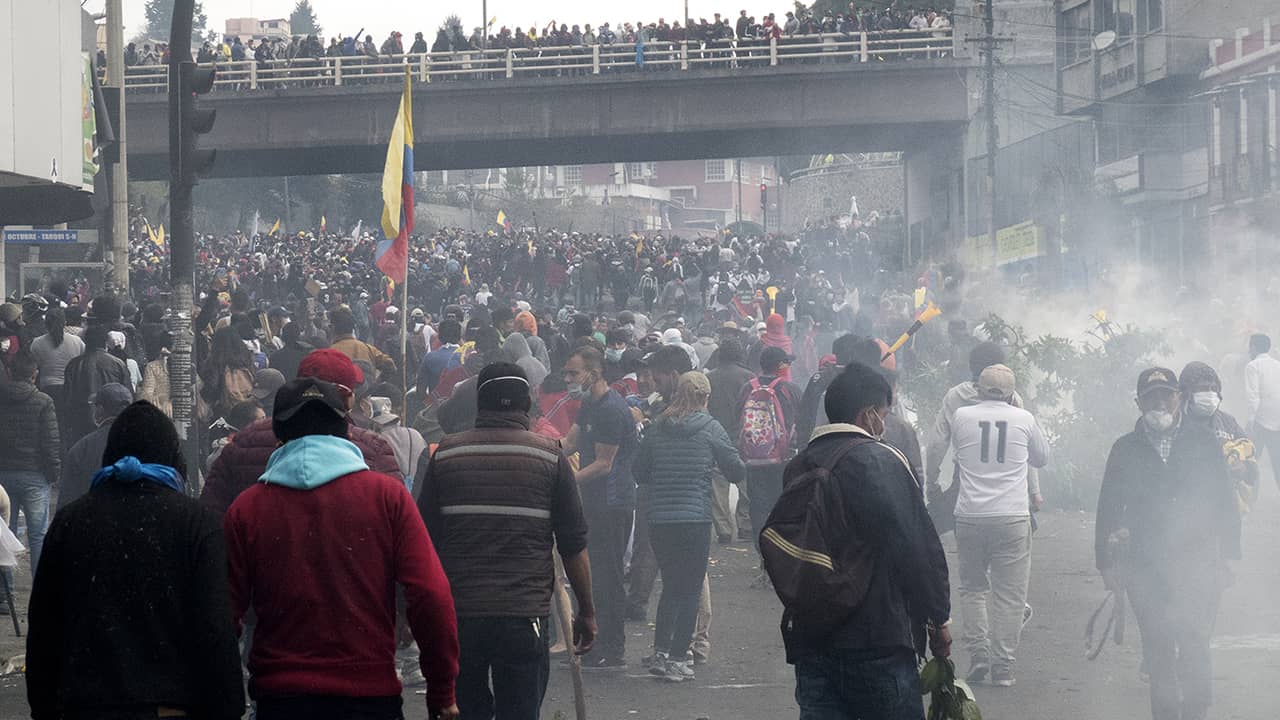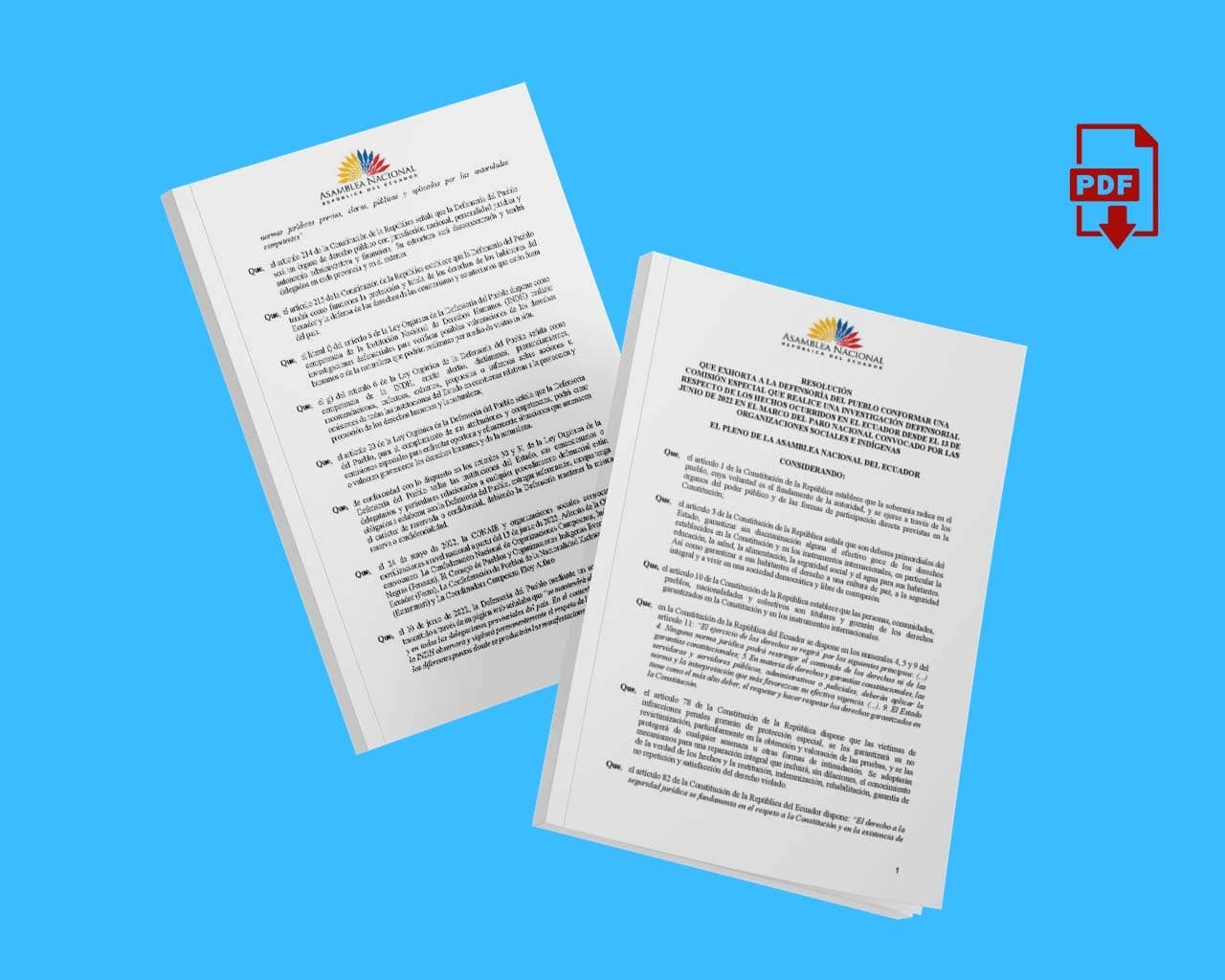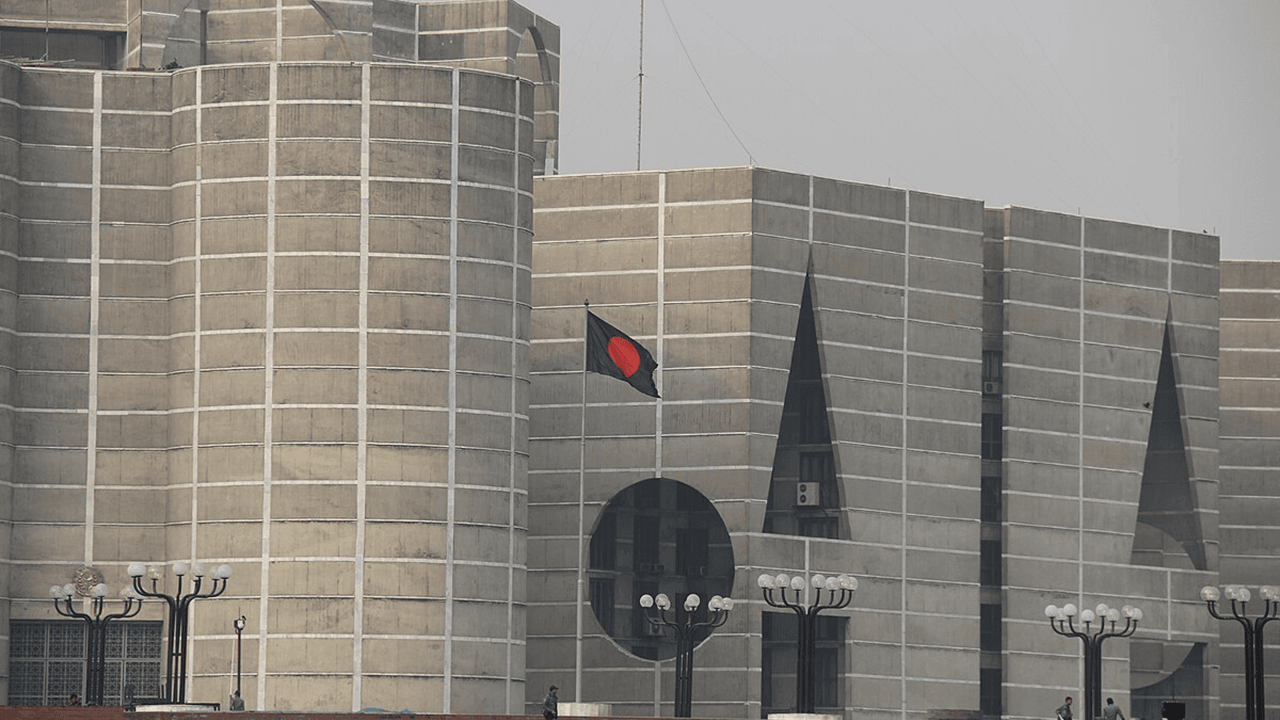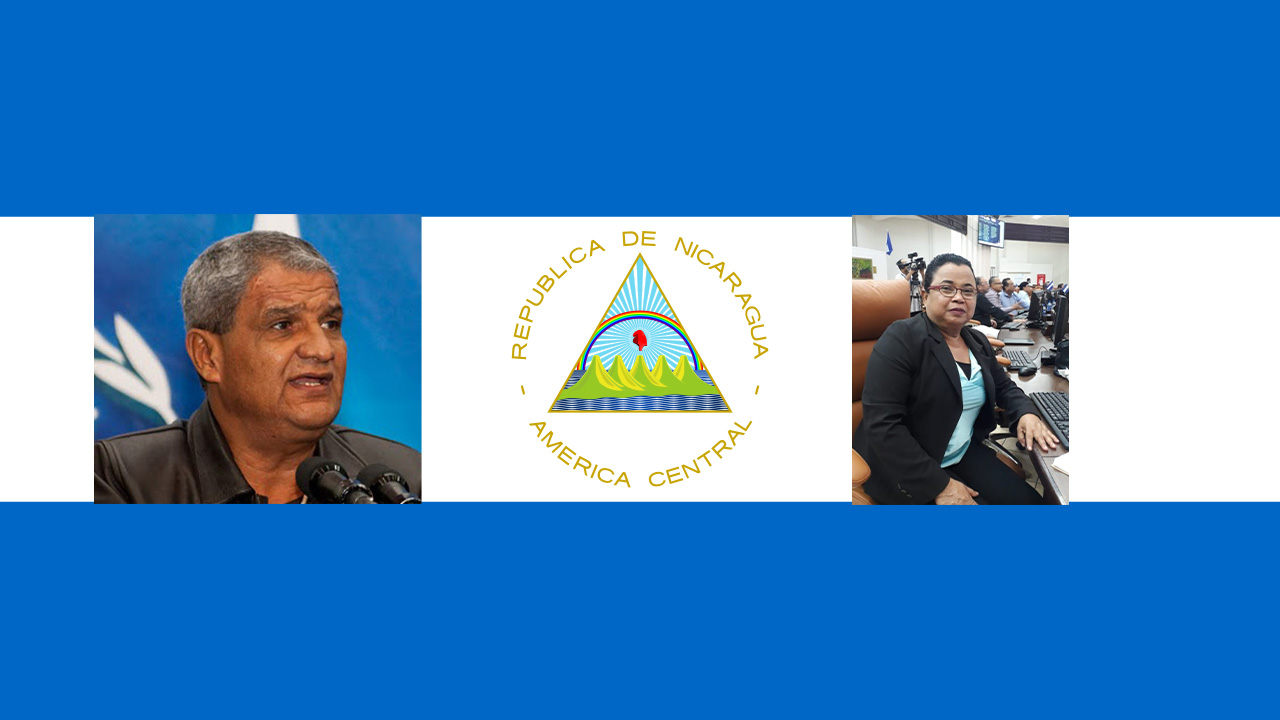
Quito / The Hague
More than 25 days ago, Ecuador went through a critical social and political turmoil that caused great concern to several local and international organizations working in the defense of human rights.
On 13 June 2022, several social and indigenous organizations began an indefinite national strike to protest against the government of President Guillermo Lasso. In the context of a deep economic and social crisis, where a high percentage of the population lives in poverty or extreme poverty, the Confederation of Indigenous Nationalities of Ecuador (CONAIE, by its Spanish acronym) and other social organizations demanded urgent social and economic reforms from the Executive following the increase in fuel prices and the expansion of the mining and oil frontier. During the weeks of the strike, several groups, including university students, worker associations, agricultural workers, health professionals, and transportation workers, joined the protests urging for more economic and social rights.
The protests spread throughout several provinces of Ecuador, in some cases becoming violent due to the excessive and disproportionate use of force by police and military agents. According to media and human rights organizations, the demonstrations have left at least six dead (article in Spanish) and one hundred more injured. Amid the protests, the government of President Lasso decreed a state of emergency in several provinces - through Decree 455 of June 17, 2022, Decree 459 of June 20, and Decree 463 of June 29, to “recover public order, control situations of manifest violence, protect reserved areas, and ensure the provision of medicines, medical gases, oxygen for hospitals and clinics, fuel, and food.”
However, the repression during the social protests generated a human rights crisis that raised the alarm among human rights organizations due to reported arbitrary detentions, criminalization of demonstrators, harassment and persecution of journalists, opposition legislators, and human rights defenders, and aggression against university premises and the “Casa de la Cultura,” among others. The Inter-American Commission on Human Rights and its Special Rapporteur for Freedom of Expression (RELE) have expressed their concern and issued an urgent call for negotiation and dialogue between the parties. Likewise, the United Nations urged the government to protect the constitutional and legal guarantees for the exercise of social protest and rules of due process applicable to all persons detained in accordance with international human rights standards.
In light of this crisis, Parliamentarians for Global Action (PGA) Board Member Dip. Esther Cuesta Santana (Ecuador) stated:

)




